- Home
- Jodi Picoult
The Jodi Picoult Collection
The Jodi Picoult Collection Read online
Thank you for purchasing this Atria Unbound/Emily Bestler Books eBook.
* * *
Join our mailing list and get updates on new releases, deals, bonus content and other great books from Atria Unbound/Emily Bestler Books and Simon & Schuster.
CLICK HERE TO SIGN UP
or visit us online to sign up at
eBookNews.SimonandSchuster.com
The Jodi Picoult Collection #1
Songs of the Humpback Whale
Plain Truth
Salem Falls
New York London Toronto Sidney New Delhi
Contents
Songs of the Humpback Whale
Plain Truth
Salem Falls
About Jodi Picoult
Reader’s Companion
About Emily Bestler Books
About Atria Books
Ask Atria
PRAISE FOR JODI PICOULT
“In her remarkable and vibrant first novel, Jodi Picoult displays near perfect pitch. Songs of the Humpback Whale is ingeniously structured and reminiscent of early Anne Tyler.”
—Mary Morris
“Charming and poignant, Picoult’s novel is even better after a second reading.”
—Library Journal
“As Picoult uses five voices to tell a complex tale of love, friendship, and a Faulknerian family history, her mastery of language strongly individuates her characters . . . This powerful and affecting novel demonstrates that there are as many truths to a story as there are people to tell it.”
—Publishers Weekly
“[My Sister’sKeeper] grabs the reader from the first page and never lets go. This is a beautiful, heartbreaking, controversial, and honest book.”
—Booklist (starred review)
“[Second Glance] is a fast-paced, densely layered exploration of love, the pull of family and the power of both to transcend time. Bottom line: Great ghost story.”
—People (Critic’s Choice)
“[I]t is impossible not to be held spellbound by the way she forces us to think, hard, about right and wrong.”
—The Washington Post
PRAISE FOR
JODI PICOULT
“Picoult is a pro at lively storytelling.”
—The Boston Globe
“Picoult spins fast-paced tales of family dysfunction, betrayal, and redemption . . . [her] depiction of these rites of contemporary adolescence is exceptional: unflinching, unjudgmental, utterly chilling.”
—Washington Post
“Ms. Picoult has carved her own niche with her novels—one part romance, one part courtroom thriller, two parts social commentary.”
—Dallas Morning News
PLAIN TRUTH
“From the very start, Picoult draws readers in. . . . The research is convincing, the plotting taut, the scenes wonderfully vivid. . . . [An] absorbing, multidimensional portrait of an Amish clan.”
—People
“Appealing, suspenseful. . . . Reads like a cross between the Harrison Ford movie Witness and Scott Turow’s novel Presumed Innocent, with a dose of television’s The Practice thrown in to spice up the legal dilemmas.”
—Arizona Republic
“A magnificently painted backdrop and distinctive characters.”
—Publishers Weekly
“[Picoult’s] novels never disappoint the reader. Plain Truth is no exception. . . . The ending [is] extremely clever and delightfully surprising.”
—Ann Hood, The Providence Sunday Journal
THE TENTH CIRCLE
“A chilling account of the contemporary world of teenagers. . . . [A] remarkable achievement and a great read.”
—Rocky Mountain News
“Another gripping, nuanced tale of a family in crisis from bestseller Picoult.”
—People
“Picoult’s writing finesse shines. . . . Coupled with its illustrated counterpart, [The Tenth Circle] becomes a treat for both the mind and the eye. . . . Picoult challenges the reader to draw parallels in his own life.”
—Houston Chronicle
VANISHING ACTS
“Ms. Picoult is a solid, lively storyteller.”
—The New York Times
“Richly textured and engaging.”
—The Boston Globe
“The worlds Picoult creates for her characters resonate with authenticity, and the people who inhabit them are so engaging.”
—People
MY SISTER’S KEEPER
“Picoult is known for writing fictional page-turners that address controversial issues, and her latest novel is no exception. . . . My Sister’s Keeper is a thrill to read.”
—The Washington Post
“This beautifully crafted novel will grab readers with its stunning topic.”
—People
“A fascinating character study framed by a complex, gripping story . . . Picoult’s novel grabs the reader from the first page and never lets go. This is a beautiful, heartbreaking, controversial, and honest book.”
—Booklist (starred review)
PRAISE FOR JODI PICOULT AND HER GRIPPING PAGE-TURNER
SALEM FALLS
“Picoult writes with a fine touch, a sharp eye for detail, and a firm grasp of the delicacy and complexity of human relationships.”
—The Boston Globe
“Picoult has become a master—almost a clairvoyant—at targeting hot issues and writing highly readable page-turners about them. . . . It is impossible not to be held spellbound by the way she forces us to think, hard, about right and wrong.”
—The Washington Post
“Genuinely suspenseful, remarkably original.”
—Publishers Weekly
“Salem Falls is one of those books you can’t put down. On every page there is a twist, a revelation, a surprise, a pay-off, placing it firmly in the category of page-turner.”
—The Providence Journal
“Right when the reader feels she has figured out all the mysteries and tied up the last loose string, Picoult leaves one final surprise for the last paragraph.”
—BookPage
PRAISE FOR
THE TENTH CIRCLE
“A chilling account of the contemporary world of teenagers. . . . [A] remarkable achievement and a great read.”
—Rocky Mountain News
“Another gripping, nuanced tale of a family in crisis from bestseller Picoult.”
—People
“Picoult’s writing finesse shines. . . . Coupled with its illustrated counterpart, [The Tenth Circle] becomes a treat for both the mind and the eye. . . . Picoult challenges the reader to draw parallels in his own life.”
—Houston Chronicle
“In her taut tale, Jodi Picoult deftly builds the suspense as the story moves from the aftermath of rape to more heartache. . . . [She] will make you guess until the end.”
—Pittsburgh Post Gazette
“Jodi Picoult’s books explore all the shades of gray in a world too often judged in black and white. She does it again in The Tenth Circle with a strong mix of metaphor and storytelling.”
—St. Louis Post-Dispatch
PRAISE FOR
VANISHING ACTS
“Ms. Picoult is a solid, lively storyteller.”
—The New York Times
“Richly textured and engaging. . . . Picoult is a pro at lively storytelling.”
—The Boston Globe
“The worlds Picoult creates for her characters resonate with authenticity, and the people who inhabit them are so engaging.”
—People
PRAISE FOR
MY SISTER’S KEEPER
“Picoult is known for writing fictional page-turners that address controversial
issues, and her latest novel is no exception. . . . My Sister’s Keeper is a thrill to read.”
—The Washington Post
“A powerfully poignant, page-turning read.”
—San Antonio Express-News
“A fascinating character study framed by a complex, gripping story. . . . Picoult’s novel grabs the reader from the first page and never lets go. This is a beautiful, heartbreaking, controversial, and honest book.”
—Booklist (starred review)
CONTENTS
Acknowledgments
Prologue
Chapter 1: Jane
Chapter 2: Oliver
Chapter 3: Jane
Chapter 4: Jane
Chapter 5: Jane
Chapter 6: Rebecca
Chapter 7: Sam
Chapter 8: oliver
Chapter 9: jane
Chapter 10: Joley
Chapter 11: Rebecca
Chapter 12: Oliver
Chapter 13: Sam
Chapter 14: Jane
Chapter 15: Joly
Chapter 16: Rebecca
Chapter 17: Oliver
Chapter 18: Sam
Chapter 19: Rebecca
Chapter 20: Jane
Chapter 21: Jane
Chapter 22: Rebecca
Chapter 23: Joley
Chapter 24: Sam
Chapter 25: Jane
Chapter 26: Rebecca
Chapter 27: Oliver
Chapter 28: Joley
Chapter 29: Jane
Chapter 30: Rebecca
Chapter 31: Jane
Chapter 32: Oliver
Chapter 33: Rebecca
Chapter 34: Sam
Chapter 35: Joley
Chapter 36: Jane
Chapter 37: Rebecca
Chapter 38: Joley
Chapter 39: Rebecca
Chapter 40: Jane
Chapter 41: Oliver
Chapter 42: Jane
Chapter 43: Jane
Chapter 44: Oliver
Chapter 45: Jane
Chapter 46: Joley
Chapter 47: Jane
Chapter 48: Oliver
Chapter 49: Jane
Chapter 50: Sam
Chapter 51: Jane
Chapter 52: Sam
Chapter 53: Oliver
Chapter 54: Jane
Chapter 55: Joley
Chapter 56: Sam
Chapter 57: Oliver
Chapter 58: Jane
Chapter 59: Sam
Chapter 60: Rebecca
Chapter 61: Jane
Chapter 62: Joley
Chapter 63: Sam
Chapter 64: Oliver
Chapter 65: Joley
Chapter 66: Sam
Chapter 67: Jane
Chapter 68: Oliver
Chapter 69: Joley
Chapter 70: Sam
Chapter 71: Rebecca
Chapter 72: Jane
A Readers Group Guide
TO TIM, FOR EVERYTHING YOU’VE GIVEN ME
ACKNOWLEDGMENTS
The author is grateful to many people and institutions for the detailed information they provided: Sarah Genman, the librarian at the New England Aquarium; the Provincetown Center for Coastal Studies; the Long Term Research Institute in Lincoln; Honeypot Orchards and Shelburne Farm in Stow. Special thanks to Katie Desmond and her tireless work at the Xerox machine, to everyone in my family who read the manuscript and supported my efforts, and to those people whose lives and experiences I borrowed to create fiction. Finally, this book would not have been published without the help of Laura Gross, my agent, who always believed in me; and Fiona McCrae, my editor, whose expertise and faith were invaluable. For this special paperback edition, I’d also like to thank Emily Bestler, who had the delightful idea that my fans would want to read everything I’d written, and then made it possible.
Prologue
REBECCA
November 1990
In the upper right hand corner of the photo is a miniature airplane that looks as if it is flying right into my forehead. It is very tiny and steel-blue, a long bloated oval cut in the middle with its own wings. It is the shape, really, of the Cross. It was the first thing my mother noticed when we received the photo in Massachusetts. “You see, Rebecca,” she said. “It’s a sign.”
When I was three and a half, I survived a plane crash. Ever since, my mother has told me I am destined for something special. I can’t say I agree with her. I do not even remember. She and my father had had a fight—one that ended with my mother crying into the garbage disposal and my father taking all of the original paintings off the walls and stashing them in the trunk of his Impala for safekeeping. As a result, my mother took me out to my grandparents’ breezy yellow home near Boston. My father kept calling. He threatened to send the FBI if she didn’t send me back home. So she did, but she told me she couldn’t go with me. She actually said, “I’m sorry, honey, but I can’t stand that man.” Then she dressed me in a little lemon knit outfit with white gloves. She turned me over to a stewardess at the airport, kissed me goodbye, and said, “Now don’t lose the gloves. I paid a bundle.”
I don’t remember much about the crash. The plane broke all around me; it split in half right before row number eight. All I recall was trying so hard to hold tight onto those gloves, and the way people didn’t move, and not being sure if it was all right to breathe.
I don’t remember much about the crash. But when I was old enough to understand, my mother told me that I was one of five survivors. She said that my picture was on the cover of Time—me crying in a burnt little yellow outfit with my arms outstretched. A farmhand had taken the photo with a Brownie camera and it had gone out to press and into the hearts of millions of people in America. She told me about fires that reached the sky and singed the clouds. She told me how insignificant the fight with my father was.
A trucker took this photo of us the day we left California. In the corner is that airplane. My mother’s hair is tied up in a ponytail. Her arm is casually draped around my shoulder, but her fingers rest unnaturally tight on my neck as if she is trying to keep me from running away. She is smiling. She is wearing one of my father’s shirts. I’m not smiling. I’m not even looking at the camera.
The trucker’s name was Flex. He had a red beard and no moustache. He said we were the best scenery he’d seen since Nebraska. Flex used his own camera—we’d left in too big a hurry to take ours. He said, “I’ll take your picture and you give me your address and I’ll send it.” My mother said what the hell, it was her brother’s rental address. If Flex turned out to be a lunatic and burned the place down no one would really be hurt.
Flex sent the photo to us care of Uncle Joley. It came in a used, readdressed manila envelope snaked with a line of twenty-five one-cent stamps. He attached a Post-it note for my mother that she did not let me read.
I’m telling you the story of our trip because I’m the only one who has really put it all together. It involved all of us—Mom, Daddy, Uncle Joley, Sam, even Hadley—but we all see it different ways. Me, I see it going backward. Like a rewinding movie. I don’t know why I see it like this. I know, for example, that my mother doesn’t.
When we got the photo from Flex, we all stood around the kitchen table looking at it—me, Mom, Joley and Sam. Joley said it was a nice picture of me, and where did we take it? Sam shook his head and stepped back. “There’s nothing there,” he said. “No trees, no canyons, nothing.”
“We’re there,” my mother said.
“That’s not why you took that picture,” Sam said. His voice hung at the edges of the kitchen like thin silver. “There’s more. We just all can’t see it.” And like that, he walked out of the room.
My mother and I turned to each other, surprised. This had been our secret. We both looked instinctively at a spot in the highway to the right of our bodies. It is the place where California becomes Arizona—a change that truckers can sense in the pavement; that for everyone else remains unmarked.
/> 1 JANE
The night before I got married I woke up, screaming, from my sleep. My parents came into the room and put their arms around me; they patted my head and smoothed my hair, fine, and I still couldn’t stop screaming. Even with my mouth closed, I continued—the high, shrill note of a nocturnal animal.
My parents were beside themselves. We lived in a button-down suburb of Boston, and we were waking up the neighbors one by one. I watched the lights come on in different houses—blue and yellow, blinking like Christmas—and wondered what was happening to me.
This wasn’t a common occurrence. I was barely nineteen, a straight-A student fresh out of Wellesley College and in 1976 that was still an accomplishment. I was marrying the man of my dreams in a prototypical white clapboard New England church, and the reception—a lavish one with white-gloved waiters and Beluga caviar—was going to be held in my parents’ backyard. I had a job waiting for me when I returned from my honeymoon. There was no foreseeable problem that I could articulate.
To this day, I don’t know why that happened to me. As mysteriously as it all started, the screaming went away and the next morning I married Oliver Jones—the Oliver Jones—and we just about lived happily ever after.
• • •
I am the only speech pathologist in this town, which means I get shuttled back and forth to different elementary schools in the San Diego suburbs. It’s not such a big deal now that Rebecca is old enough to take care of herself, and since Oliver is away so much of the time, I have less to do at home. I enjoy my work but certainly not the way Oliver enjoys his work. Oliver would be content to live in a sailcloth tent on the coast of Argentina, watching his whales sound in warm water.
My job is to help children find their voices—kinds that come to school mute, or with lisps or cleft palates. At first, they come into my little makeshift classroom one at a time and they shuffle their Keds on the floor and shyly glance at the formidable recording equipment and they are absolutely silent. Sometimes I stay silent too, until the student breaks the ice and asks what he or she is supposed to do. Some students cover their mouths with their hands at this point; I have even seen one little girl cry: they cannot stand to hear their own voices, pieces of themselves that they have been told are ugly. My role is to show them there’s someone who is ready to listen to what they have to say and the way they have to say it.

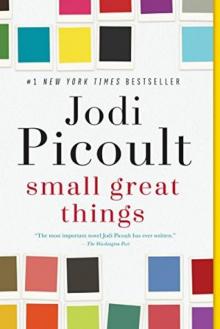 Small Great Things
Small Great Things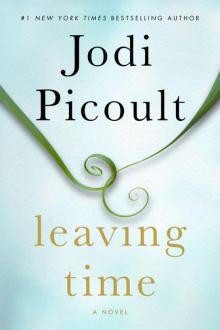 Leaving Time
Leaving Time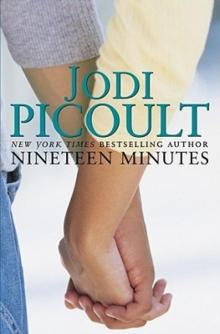 Nineteen Minutes
Nineteen Minutes Larger Than Life
Larger Than Life Perfect Match
Perfect Match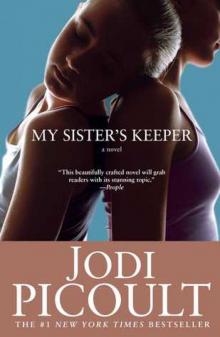 My Sister's Keeper
My Sister's Keeper The Pact
The Pact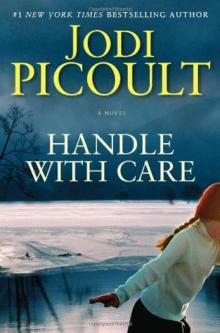 Handle With Care
Handle With Care Songs of the Humpback Whale
Songs of the Humpback Whale Mermaid
Mermaid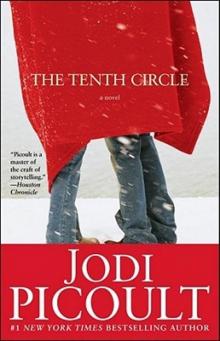 The Tenth Circle
The Tenth Circle The Color War
The Color War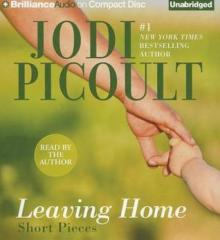 Leaving Home: Short Pieces
Leaving Home: Short Pieces House Rules
House Rules Lone Wolf
Lone Wolf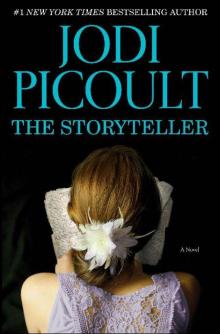 The Storyteller
The Storyteller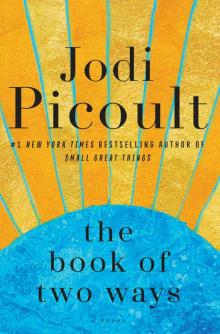 The Book of Two Ways
The Book of Two Ways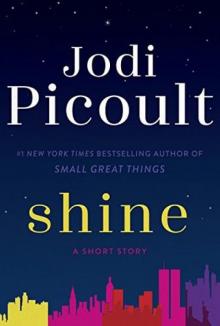 Shine
Shine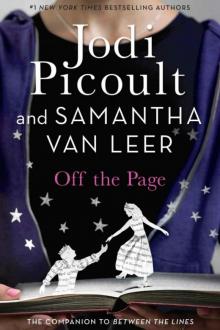 Off the Page
Off the Page Sing You Home
Sing You Home Second Glance: A Novel
Second Glance: A Novel Mercy
Mercy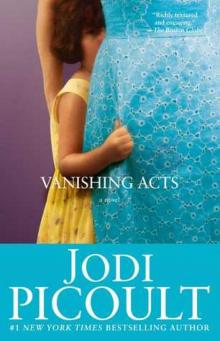 Vanishing Acts
Vanishing Acts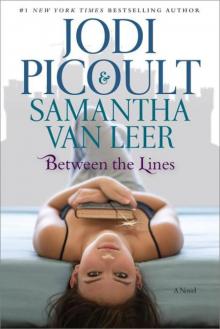 Between the Lines
Between the Lines Plain Truth
Plain Truth Salem Falls
Salem Falls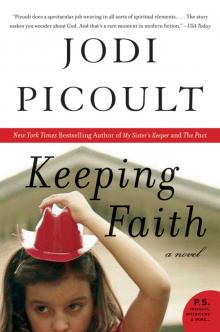 Keeping Faith
Keeping Faith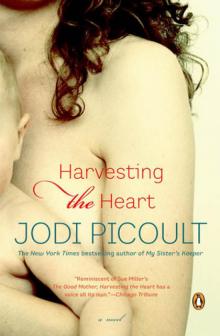 Harvesting the Heart
Harvesting the Heart Change of Heart
Change of Heart Where There's Smoke
Where There's Smoke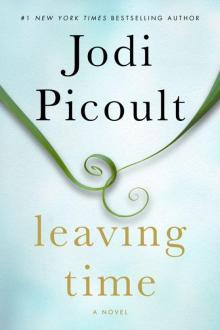 Leaving Time: A Novel
Leaving Time: A Novel Over the Moon
Over the Moon House Rules: A Novel
House Rules: A Novel The Jodi Picoult Collection #2
The Jodi Picoult Collection #2 Leaving Home: Short Pieces (Kindle Single)
Leaving Home: Short Pieces (Kindle Single)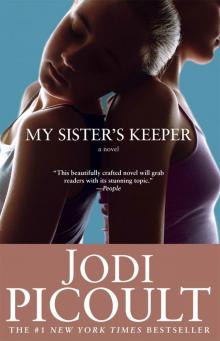 My Sister's Keeper: A Novel
My Sister's Keeper: A Novel![Mermaid [Kindle in Motion] (Kindle Single) Read online](http://i1.bookreadfree.com/i1/04/03/mermaid_kindle_in_motion_kindle_single_preview.jpg) Mermaid [Kindle in Motion] (Kindle Single)
Mermaid [Kindle in Motion] (Kindle Single) The Jodi Picoult Collection #4
The Jodi Picoult Collection #4 Sing You Home: A Novel
Sing You Home: A Novel The Jodi Picoult Collection
The Jodi Picoult Collection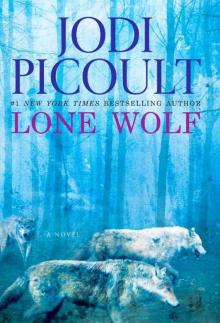 Lone Wolf A Novel
Lone Wolf A Novel Second Glance
Second Glance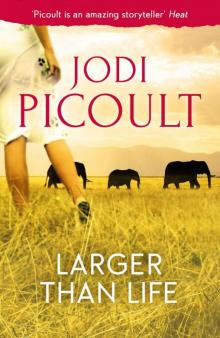 Larger Than Life (Novella)
Larger Than Life (Novella) The Jodi Picoult Collection #3
The Jodi Picoult Collection #3